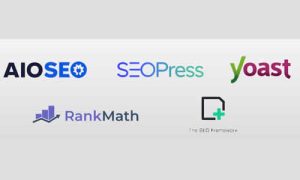Domain authority is one of the key indicators of success in SEO. It reflects your website’s ability to rank well in search engines, directly influencing traffic and conversions. Increasing this authority is not a simple task, but with the right strategies, significant results can be achieved. In this article, we will explore effective ways to elevate your domain authority.
Understand the Importance of Domain Authority
Domain authority, measured on a scale from 1 to 100, is assessed by various factors, including the quality and quantity of backlinks, the site’s structure, and user experience. A site with high authority is more likely to appear on the first pages of search results, which is crucial for attracting qualified visitors.
Produce Quality Content
Creating relevant and high-quality content is fundamental for increasing your domain authority. The content should address the questions and needs of your target audience. Use keywords intelligently, but avoid keyword stuffing, as this can harm readability. Additionally, consider including varied formats, such as videos and infographics, which can enrich the user experience.
Invest in Link Building
Link building is an effective strategy for increasing your domain authority. This involves getting other relevant and high-quality websites to link to yours. A good practice is to create content that is naturally shareable, such as case studies, research, or comprehensive guides. You can also establish partnerships with influencers or other sites in your niche for link exchanges.
An effective approach is creating guest posts, which allows you to write for other blogs, generating backlinks to your site. This not only increases visibility but also positions your brand as an authority on the subject.
Improve User Experience
User experience (UX) is a crucial factor for domain authority. Websites that offer intuitive navigation, load quickly, and are responsive on mobile devices tend to have lower bounce rates. Use tools like Google PageSpeed Insights to identify areas that need improvement.
Additionally, a clean and attractive design, with clear calls to action, can increase the time visitors spend on your site, signaling to search engines that your content is valuable.
Utilize On-Page SEO
On-page SEO is essential for optimizing each page of your site. This includes the proper use of title tags, meta descriptions, headers, and friendly URLs. Additionally, optimizing images with relevant descriptions and alt texts can further improve your ranking. Ensure that your site is logically structured, making navigation easy for both users and search engines.
Monitor Your Results
Finally, it is crucial to monitor the results of your SEO strategies. Use tools like Google Analytics and Google Search Console to track your site’s performance. Analyze traffic metrics, conversion rates, and the sources of visitors. With this data, you can adjust your tactics as needed, ensuring that your efforts to increase domain authority are effective.
















